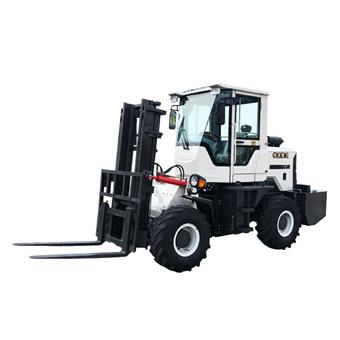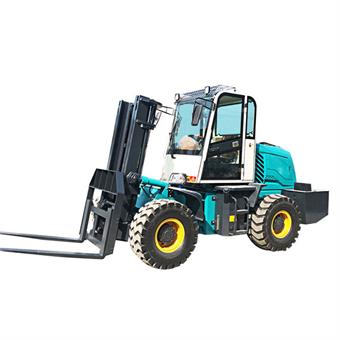
News
In the world of material handling, rough terrain forklifts play a crucial role in ensuring seamless operations in challenging environments. These robust machines are designed to navigate through uneven surfaces, providing a versatile solution for various industries. In this blog post, we will delve into the intricacies of rough terrain forklifts, exploring their classes, applications, and why they are indispensable in certain settings.
Rough terrain forklifts are categorized into different classes based on their design and capabilities. The most common classes include:
These forklifts are equipped with electric motors, making them environmentally friendly and suitable for indoor applications. However, they are less common in rough terrain scenarios due to their limited outdoor capabilities.
These forklifts run on traditional fuels like gasoline, diesel, or propane. They are versatile and can handle various terrains, making them a popular choice for outdoor applications.
All-terrain forklifts are designed explicitly for challenging environments. They feature enhanced suspension systems, larger tires, and powerful engines, enabling them to navigate through mud, gravel, and other rough surfaces effortlessly.
The versatility of rough terrain forklifts makes them indispensable in numerous industries. Some common applications include:
Construction Sites: Rough terrain forklifts excel in construction environments, where uneven ground and rugged terrains are the norm. They efficiently transport materials, equipment, and pallets across the site.
Forestry Operations: In forestry, where the terrain can be unpredictable, these forklifts are crucial for moving timber, logs, and other heavy loads.
Farming and Agriculture: Rough terrain forklifts play a vital role in agricultural settings, aiding in the handling of bulk materials, such as feed, fertilizers, and harvested crops.
Mining: The robust design of these forklifts makes them well-suited for the demanding conditions of mining operations, where they assist in transporting materials within the mining site.
The unique features of rough terrain forklifts make them the preferred choice in specific scenarios. Here are some compelling reasons to opt for these specialized forklifts:
Off-Road Capability: Unlike traditional forklifts, rough terrain forklifts can navigate through unpaved and uneven surfaces with ease.
Durability: Built with sturdy materials and reinforced components, these forklifts are designed to withstand the rigors of demanding environments.
Versatility: From construction sites to remote agricultural fields, rough terrain forklifts prove their versatility by adapting to various settings.
Increased Lifting Capacity: These forklifts often boast higher lifting capacities compared to their counterparts, making them ideal for heavy-duty applications.
In conclusion, understanding the classes and applications of rough terrain forklifts sheds light on their importance in various industries. Their ability to tackle challenging terrains makes them a valuable asset, contributing to the efficiency and productivity of diverse operations.
Rough terrain forklifts are designed with features such as enhanced suspension, larger tires, and robust engines, allowing them to navigate through uneven and challenging terrains that traditional forklifts may struggle with.
While electric-powered forklifts are more suitable for indoor applications, some manufacturers offer models with enhanced features, allowing limited outdoor use. However, internal combustion engine forklifts are more commonly used for rough terrain scenarios.
Industries such as construction, forestry, agriculture, and mining benefit significantly from the capabilities of rough terrain forklifts due to their ability to operate in challenging environments.
Despite potentially higher upfront costs, the durability and versatility of rough terrain forklifts often result in long-term cost savings, especially in industries with demanding operational conditions.
Regular maintenance is crucial to ensure the optimal performance and longevity of rough terrain forklifts. This includes checking and servicing components such as tires, suspension systems, and engines to prevent breakdowns and maximize efficiency.

